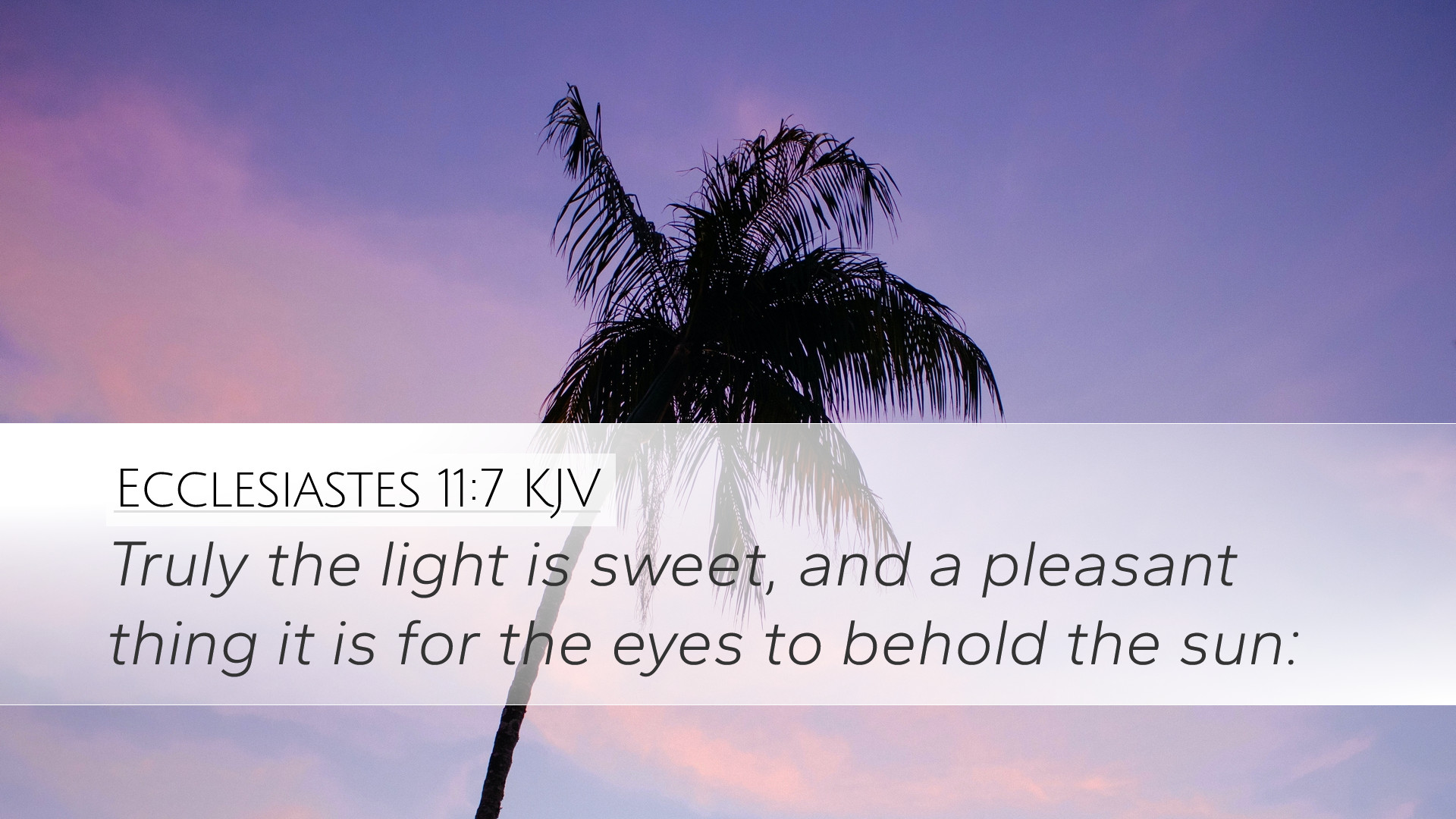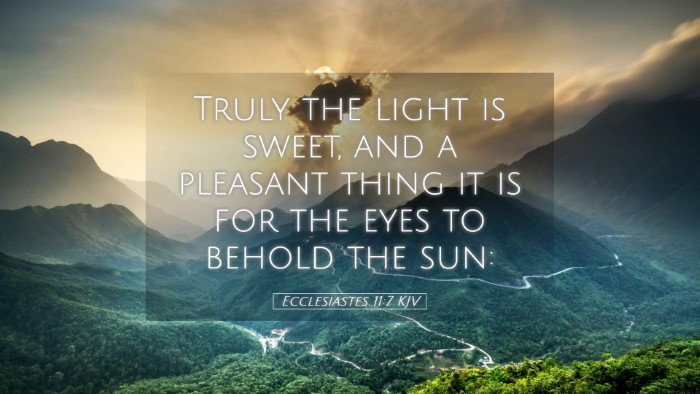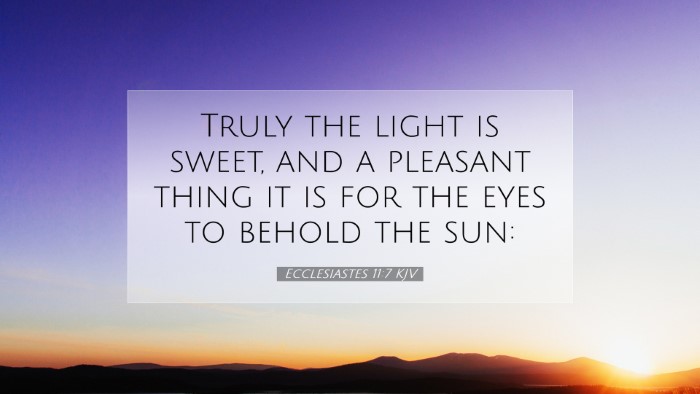Old Testament
Genesis Exodus Leviticus Numbers Deuteronomy Joshua Judges Ruth 1 Samuel 2 Samuel 1 Kings 2 Kings 1 Chronicles 2 Chronicles Ezra Nehemiah Esther Job Psalms Proverbs Ecclesiastes Song of Solomon Isaiah Jeremiah Lamentations Ezekiel Daniel Hosea Joel Amos Obadiah Jonah Micah Nahum Habakkuk Zephaniah Haggai Zechariah MalachiEcclesiastes 11:7
Ecclesiastes 11:7 KJV
Truly the light is sweet, and a pleasant thing it is for the eyes to behold the sun:
Ecclesiastes 11:7 Bible Commentary
Commentary on Ecclesiastes 11:7
Verse: "Truly the light is sweet, and a pleasant thing it is for the eyes to behold the sun."
Introduction
The observation of life and its fleeting nature is a central theme in the book of Ecclesiastes. This verse opens with a proverb-like statement emphasizing the joy and value of light and sight, reflecting on the innate desire of humanity for joy and visibility in life experiences.
Contextual Analysis
Ecclesiastes is attributed to King Solomon, who reflects upon various pursuits in life, often concluding that many of them are ultimately futile. The previous verses set the stage for this reflection on the importance of living in the light, both literally and metaphorically.
Light as a Metaphor
In biblical literature, light often represents knowledge, purity, and divine presence. Matthew Henry emphasizes that light is not only a physical phenomenon but also a symbol of joy and enlightenment. It invites us to appreciate life’s beauty and the joys it offers, making it essential to embrace the positive aspects of our existence.
Pleasantness of Viewing the Sun
Albert Barnes notes that the mention of the sun illustrates the importance of deriving joy from its warmth and brightness. The sun serves as an essential source of life, growth, and sustenance, paralleling how the knowledge of God illuminates the spiritual path of believers.
Interpretive Considerations
This verse signifies more than a mere endorsement of physical light; it acknowledges the fundamental human experience of seeking joy and meaning in life. Adam Clarke suggests that the sweetness of light serves as a reminder of the goodness in God's creation and invites believers to find delight in His works.
The Duality of Light
Ecclesiastes often applies a dual lens—acknowledging both the pleasures of life and the inevitable sorrows. This verse echoes the anticipation of the happiness derived from light, juxtaposed against the somber realities of life’s fleeting moments. Thus, it serves as an encouragement to embrace joy, even amidst life’s complexities.
Applications for Life
For theological reflection and practical application, this verse can inspire a few key considerations:
- Embrace Positivity: Encourage individuals to focus on and celebrate the good in life. Pastors can emphasize the necessity of gratitude and recognition of God’s blessings.
- Reflect on Creation: Encourage contemplation of God’s creation, allowing the beauty of nature to inspire spiritual growth and appreciation for divine craftsmanship.
- Find Balance: Recognize the coexistence of joy and hardship in life. Understanding that light (joy) is often most appreciated in contrast to darkness (sorrow) fosters resilience and deeper faith.
Conclusion
In summation, Ecclesiastes 11:7 serves as a profound reminder of the sweetness of light and the joy derived from life’s experiences. As pastors, theologians, and students of the Word engage in the study of this verse, it is vital to appreciate the distinctive balance of joy and futility that Solomon presents. The verse encourages living with an awareness of the light—both in a physical sense as well as spiritually—and cherishing the moments we have to witness God’s creation. Embrace the light, for it is indeed sweet, and let it guide your reflections on the life that God has granted us.


